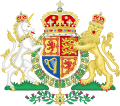| Inner House of the Court of Session | |
|---|---|
 Royal Court of Arms of the United Kingdom as used by the Courts in Scotland | |
 | |
| 55°56′56″N3°11′28″W / 55.949°N 3.191°W | |
| Established | 1810 |
| Jurisdiction | Scotland |
| Location | Parliament House, Edinburgh |
| Coordinates | 55°56′56″N3°11′28″W / 55.949°N 3.191°W |
| Composition method | Appointed by Scottish Ministers on joint recommendation of the Lord President and Lord Justice Clerk |
| Authorised by | Court of Session Act 1810 and Court of Session Act 1988 |
| Appeals to | Supreme Court of the United Kingdom |
| Judge term length | Compulsory retirement at age of 75 |
| Number of positions | 12, by Court of Session 1988 |
| Website | www.scotcourts.gov.uk |
| Lord President of the Court of Session | |
| Currently | Paul Cullen, Lord Pentland |
| Since | 3 February 2025 |
| Lord Justice Clerk | |
| Currently | John Beckett, Lord Beckett |
| Since | 4 February 2025 |
| Part of a series on |
| Scots law |
|---|
 |
The Inner House is the senior part of the Court of Session, the supreme civil court in Scotland; the Outer House forms the junior part of the Court of Session. It is a court of appeal and a court of first instance. The chief justice is the Lord President, with their deputy being the Lord Justice Clerk, and judges of the Inner House are styled Senators of the College of Justice or Lords of Council and Session . [1] Criminal appeals in Scotland are handled by the High Court of Justiciary sitting as the Court of Appeal.
Contents
- Remit and jurisdiction
- First instance jurisdiction
- Appellate jurisdiction
- Appeals to the Supreme Court of the United Kingdom
- See also
- References
- External links
The Inner House is the part of the Court of Session which acts as a court of appeal for cases from the Outer House [2] and from appeals in civil cases from the Court of the Lord Lyon, Scottish Land Court, and the Lands Tribunal for Scotland. It will hear appeals on questions of law from the Sheriff Appeal Court. It will also sit as a court of first instance in rare instances. The Inner House is always a panel of at least three senators and does not sit with a jury.
The division of the Court into two houses was first enacted by the Court of Session Act 1810 and most recently confirmed by the Court of Session Act 1988.